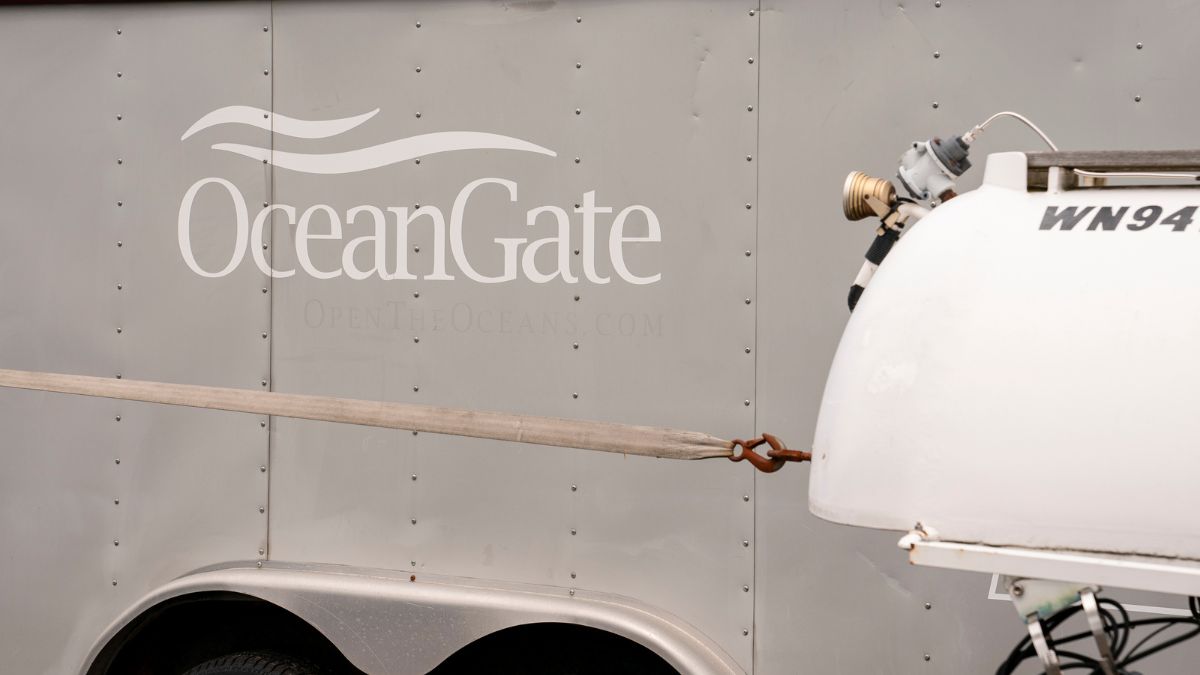Since the beginning of OceanGate’s Titan excursion, all eyes have been focused intently on the submersible and its trek to explore Titanic wreckage nearly 13,000 feet below sea level. The vessel transported five passengers to largely unexplored depths, and as we all learned over the course of the last week, tragedy struck soon after the exploration began.
In fact, the U.S. Navy registered a sound that they now believe was the implosion within hours of the Titan going underwater, and as rescue efforts and a press conference from the Coast Guard have confirmed, pieces of the submarine were found, and an implosion was deemed the cause of the wreckage and death of those on board.
Shahzada and Suleman Dawood, Hamish Harding, Paul-Henri Nargeolet, and Stockton Rush were those upon the Titan when the tragedy occurred, and OceanGate’s safety standards – in addition to statements made by Stockton Rush himself – have been the talk of social media in the hours since the news broke on June 22.
Submarine experts weighed in on the heavily-debated topic via a Reddit thread, and while those of us who have never given submersible travel a first thought, let alone a second one, the thread can be a little out of the range of understanding. There’s a lot to discover and uncover about the topics being shared. Still, one central theme remains — many are in agreement that safety precautions were not taken seriously enough for this trek to have been successful. There’s a specific brand of heartache in that knowledge now.
“Break rules” is likely in quotes due to a quote from Rush himself saying that he’s done just that on the road to creating the Titan and preparing for the excursion.
An engineer in a chemical plant spoke out about safety too, and how many components and moving pieces are constantly in play when it comes to learning rules, and which ones can and can’t be broken.
Another chemical plant engineer spoke up, saying that it’s often a murky area in trying to determine who on the staff “gets it” at all. At times, it can seem like no one is out to understand what’s happening.
One Redditor says that Rush will likely be remembered for new regulations put in place, but the same submarine expert that spoke above says that since the Titan was a privately built subversive, it doesn’t have to be regulated in a way if it “operates in international waters.” However, they do hope that this will teach anyone with “money and interest” that it’s important to pay attention to those around you and rely heavily on the brilliance and strategy of experts in the field.
Safety standards being “written in blood” is a phrase we’ve heard before, specifically by retired U.S. Coast Guard captain Kyle McAvoy in 2019 to CNN, regarding a tragedy on a diving boat.
If there’s any kind of solace to be found in an event as tragic as this one, it’s that the five men likely felt no pain, that the tragedy took place in milliseconds — that they were likely still in the beginning stages of excitement and fascination about their journey. Many responses also follow suit in saying they hope people will leave the Titanic unbothered in its final resting place now.
“A ship lost in 1912 shouldn’t be claiming lives in 2023” seems to be another widely-acknowledged phrase from those who have followed the tragedy over the last week. The Titanic is an interesting piece of history — that can’t be disputed, but the risks of exploration must be weighed with concern regarding every little piece of the puzzle.
We’re sending our thoughts to the friends and loved ones of those lost on the Titan.

